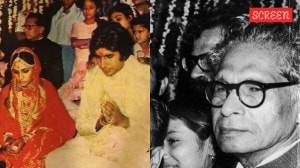West Indies drawn into fixing scandal
London, October 23: Cricket's long-running international match fixing scandal took a new twist here on Sunday with claims that West Indian...

London, October 23: Cricket’s long-running international match fixing scandal took a new twist here on Sunday with claims that West Indian cricketers have been named in a report by India’s Central Bureau of Investigation (CBI).
According to the Sunday Telegraph in England, there is a chapter in it on non-Indian players. This chapter is said to mention two senior West Indian players as well as three Australians.
The references to the West Indians revolve around an extraordinary match during the 1996 World Cup when supposed no-hopers Kenya convincingly beat West Indies by 73 runs.
The respected cricket annual Wisden described the match as “one of the biggest upsets in cricket history”. Kenya were dismissed for a low score of 166 before bowling out West Indies for just 93 in a mere 35.2 overs.
It was reported that after the match there was a row in the West Indies dressing room after a senior West Indian player had been seen congratulating the Kenyans.
The West Indians involvement means that most of the World’s major cricket nations have now been tainted in some way by match-fixing.In Pakistan Justice Malik Qayyum’s report led to former captain Salim Malik being banned for life and raised huge doubts over the integrity of several players.
Another player to receive a life ban was Hansie Cronje of South Africa who admitted receiving money from bookmakers.
Cronje’s lawyers have said they may appeal against the ban issued by the United Cricket Board of South Africa.
Shane Warne and Mark Waugh of Australia were both found guilty of giving information to bookmakers but the Australian Cricket Board received strong criticism for trying to cover up the story.
Meanwhile in England former Test all-rounder Chris Lewis still maintains that the England and Wales Cricket Board did not properly investigate claims arising from a conversation he had with an Indian bookmaker that England players had been asked to fix matches.
Earlier this month World cricket’s governing body the International Cricket Council (ICC) at its meeting in Kenya drew up a declaration to be signed by all players and officials in international matches stating they have not been involved in match-fixing.
ICC has also created a new anti-corruption unit headed by Sir Paul Condon, the former Chief of London’s Metropolitan Police.However, it remains to be seen if its work will be helped or hindered by the various National match-fixing inquiries that are currently taking place.



- 01
- 02
- 03
- 04
- 05




























